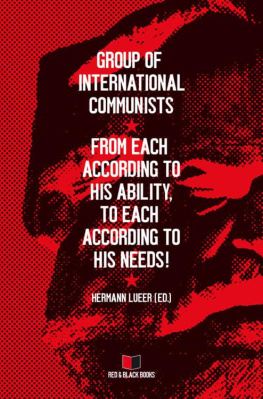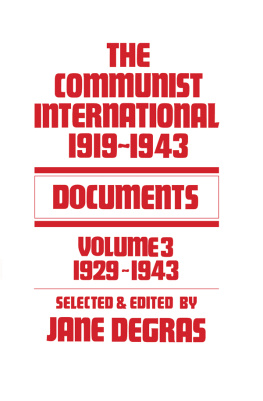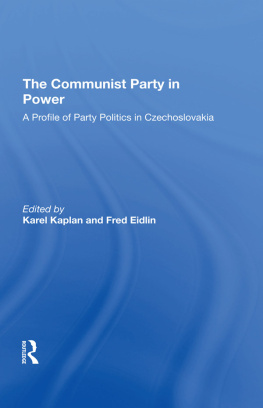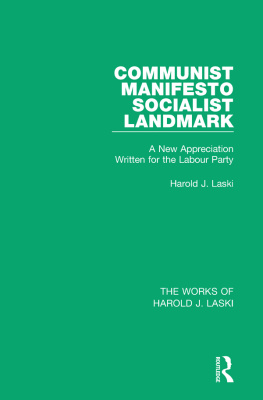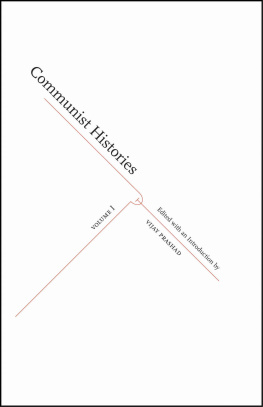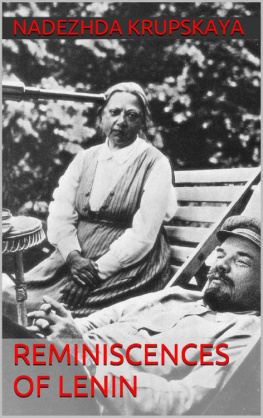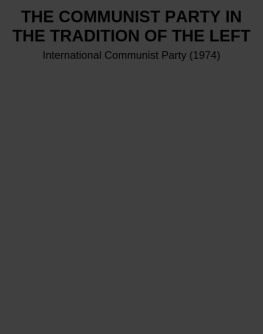First published 2003 by Frank Cass Publishers
This edition published 2014 by Routledge
2 Park Square, Milton Park, Abingdon, Oxon OX14 4RN
711 Third Avenue, New York, NY 10017
Routledge is an imprint of the Taylor & Francis Group, an informa business
Copyright 2003 Institute of Universal History
British Library Cataloguing in Publication Data
South Africa and the Communist International: a documentary history.
Vol. 1: Socialist pilgrims to Bolshevik footsoldiers, 19191930
1. Communist Party of South Africa History Sources
2. Third International History Sources 3. Communism South Africa History Sources
I. Davidson, A.B. (Apollon Borisovich), 1929
24.268075.
ISBN 13: 978-0-7146-5280-1 (hbk)
Library of Congress Cataloging-in-Publication Data
South Africa and the Communist International: a documentary history/editors Apollon Davidson [et al.].
p. cm.
Includes bibliographical references.
Contents: v. 1. Socialist pilgrims to Bolshevik footsoldiers, 19191930 v. 2. Bolshevik footsoldiers to victims of bolshevisation, 19311939. ISBN 0-7146-5280-6 (cloth: v. 1) ISBN 0-7146-5281-4 (cloth: v. 2)
1. Communism South Africa History 20th century. 2. Communist Party of South Africa History 20th century. 3. Communist International History. 4. Soviet Union Relations South Africa. 5. South Africa Relations Soviet Union. 6. Communism History Archival resources. 7. Russia (Federation) Archival resources. I. Davidson, A.B. (Apollon Borisovich)
HX450.5A6S672 2003
All rights reserved. No part of this publication may be reproduced, stored in or introduced into a retrieval system or transmitted in any form or by any means, electronic, mechanical, photocopying, recording or otherwise, without the prior written permission of the publisher of this book.
Typeset by Tradespools, Frome, Somerset
South Africa and the Communist International: A Documentary History is part of the series of publications of documents from the archives of the Communist International, an international communist organisation which in the 1920s and 1930s controlled and directed the communist movement throughout the world. The Communist International, or Comintern, operated from Moscow but covered the globe with a network of its affiliates and front organisations. The Institute of Universal History of the Russian Academy of Sciences has been working on the publication of Cominterns documents since late 1991 when the archives of this organisation part of the former Soviet Party Archive were first opened for researchers. Several volumes dealing with different communist parties have already been published, both in Russian and in English, and more are in the pipeline.
These publications reveal an entirely new aspect of the world history of the 20th century. The existence of the Comintern and some of its activities had been known to historians but its real significance and the real meaning of its policy came to light only with the new evidence emerging from the archives.
Inevitably, there has been a huge academic interest in these publications. For the first time historians from many countries have obtained access to the sanctum of the factory of communist ideology and its mentality and methods in the key decades of the 1920s and 1930s. Revelations from the Cominterns archives are bound to change the picture of the history of the 20th century as we knew it. Dozens of historians from all over the world came to work in the archives, and a huge international project aimed at computerising the entire archives of the Comintern is under way. Numerous conferences, seminars and other academic gatherings devoted to the Comintern in light of the new documents have taken place. Publications of documents on the activities of a number of the Cominterns organisations in different countries are being prepared by our colleagues in those countries. On the basis of all these publications and of the archival materials still unpublished but now available historians have the opportunity of reconstructing not only a hitherto closed history of the Comintern but also more informed versions of national and regional histories, of the personalities involved and of the global world order of the time.
Russian historians have a special interest in the history of the Comintern. Not only does it reveal the real background to Soviet foreign policy and its international relationships of the time but it also enables us to understand the history of the Soviet communist party itself, the mentality of the Soviet communist elite and its relations with its counterparts abroad, the mechanism of its influence internationally and the reasons for the lasting impact of its ideology and methods.
This publication offers a selection of documents that cover one of the least studied areas of the activities of the Comintern; its policy in South Africa. This region, geographically very distant from the Soviet borders, had a Communist Party from 1921 on, and this party maintained close relations with Moscow for decades. The Comintern was the organisation which introduced and mediated the partys experiences of the Soviet world, and there is no doubting the Cominterns profound and long lasting effect on its South African section.
The South African party influenced the Comintern too. It certainly drew the attention of the leaders of the Comintern to what was then called the Negro question and the colonial problem. Party representatives participated in the Cominterns discussions on race and nationality, on the interpretation of the political and social situation on the African continent and on the strategy and tactics of the communist movement in colonial countries. They did not themselves devise the policy of the Comintern but contributed to the opinions and views of those who did. The documents that the reader finds in these two volumes shed light on all these discussions both within the Comintern and within the South African party.
The publication also gives an opportunity of a better understanding of the social and political scene in South Africa in the period between the two world wars, on the position and views of the urbanised African population and of the emerging African intelligentsia. Party documents, private and official letters from the party members to Moscow, reports by the Cominterns emissaries to the region documents that formed the basis of the opinions of Cominterns top leadership give a detailed account of the position of the South African party and within it, and of the situation in the region as a whole.


